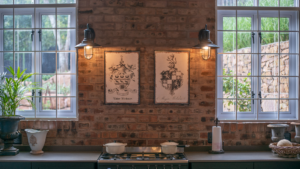Theft is devastating, especially when you are a homeowner, as your home contains items with monetary and emotional value for you and your family. To ensure that your possessions are well-protected, getting the proper homeowner’s insurance policy is critical as it will ensure that you are protected in case of a break-in.
When you come back to your home, the last thing you would want to see is a broken window or find your front door opened. Having your house broken into can be scary, and it could rattle your sense of security. When this happens, you should not worry about replacing your belongings or repairing your home. That is why you must have a home insurance policy, as it will assist you when there is theft. However, there are things you should understand regarding the coverage you will have.
Home insurance will cover theft, vandalism, as well as several other hazards that might occur. The insurance policy will also cover everyone on your policy, like your children, even if they live on campus while they are away at university and your guests while staying at your home.
Home insurance will include cover for the home structure, personal property, liability, and additional living expenses. When a break-in occurs, there are three categories that you will need to think about. These three categories include:
- Dwelling theft protection: dwelling coverage will assist in paying for structural damage that your home may incur during a break-in. This will include broken doors or windows during the theft, and your home insurance provider will assist with repairing or replacing these things. Though you usually need to meet a specific deductible before receiving assistance from the home insurance provider, knowing you do not have to worry about deductible limits when there is theft is vital.
- Personal property replacement: this assists you with replacing stolen possessions and fixing any damaged items. This ranges from appliances, furniture, clothing or even sports equipment. However, this will largely depend on the value of your items, so you may not have complete protection. Most policies will have sub-limits for highly valuable items, and some may have increased limits for things such as home office equipment and computers. Therefore, if you want more coverage on items that do not have increased limits, you will need to purchase personal property insurance.
- Other structures: home insurance policies will cover more than your home and the items inside as they will cover additional property structures. This cover would include detached garages and fences if they were damaged during a break-in.
As with most home insurance coverage, there will be limitations on how much protection you will receive when theft occurs. Your dwelling theft coverage will not have a deductible. However, your personal property theft protection does, so you need to reach your deductible before your home insurance provider starts paying out.
Stolen personal property also has policy limitations; therefore, if you want extra protection, it is advised that you get an insurance rider such as personal property insurance. Your home insurance provider will limit how much they will pay so you might need an insurance rider for those expensive items. In most instances, the limits are set for jewellery, furs and trailers. Your insurance policy will limit other events, like when possessions are stolen outside the home or in your car. Some insurers will limit the coverage for belongings in external locations to 10% of the coverage designated for personal items. If the possessions are stolen from your car, there’s a good chance that your insurance policy will cover the loss.
When it comes to theft from your car, home insurance will assist in paying to replace any of your valuables if they are stolen from your vehicle. However, your home insurance provider would not help pay to repair the damage that occurred to the car during the break-in. You have to file a claim with the auto insurance company to be covered.
Your home insurance provider will do the best they can to ensure that you are covered, but there are instances where you will not be covered. Firstly, if you do not report the theft to the police after it occurs, but you still try to file a claim, then there is a chance that you will not receive financial assistance for those stolen or damaged items.
Conclusion
Taking steps to keep your home safe and secure will do more than protect your valuables; it can help reduce your insurance premiums. Ensure you have the proper insurance cover to protect your home and possessions.
Take a look at Unpacking the Difference Between Homeowners’ & Renters’ Insurance.



